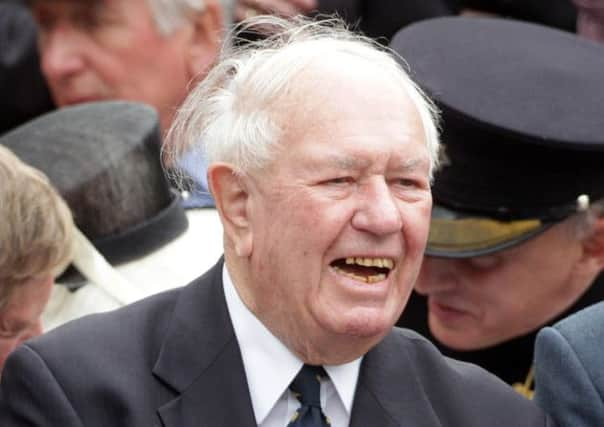Obituary: Wing Commander Bob Foster, DFC, Battle of Britain pilot


Wing Commander Bob Foster was one of the heroes of the Battle of Britain, flying Hurricanes and Spitfires with 605 Squadron. He was credited with destroying and damaging a number of enemy aircraft; later in the war he destroyed at least five Japanese aircraft while flying from airfields in northern Australia.
His grace and modesty were shown when recently he delivered two lectures in Finland about his war experiences. He singled out the Hurricane and Spitfire as being vital for the victory. “The Hurricane made history, and it affected me in a way because I was 17 at the time. It flew from Edinburgh to London at an average speed of 408 miles an hour, which was quite extraordinary for a fighter plane in those days. And it did impress everybody. It impressed the British people anyway.”
Advertisement
Hide AdAdvertisement
Hide AdRobert William Foster attended a local school in Battersea, London and his first job was with a marketing venture with Shell-Mex and BP. Six months before war broke out in 1939 Foster joined the RAF Volunteer Reserve to train as a pilot. He was called up in August to complete his training before joining 605 Squadron.
The squadron was stationed for much of the early years of the war at Drem, just outside Edinburgh, from where they patrolled the North Sea. It was sent south in May 1940 to cover the evacuation from Dunkirk and then returned to Drem.
The squadron was moved south in September when Foster was heavily engaged in the Battle of Britain, and at the end of that month he achieved his first success, damaging an enemy plane while his own Hurricane was hit by enemy fire in the dog fight.
The following month he shot down two enemy aircraft and shared in the destruction of another. Further “kills” followed and he chased a German bomber out to sea. In September 1941, he joined a fighter training unit as an instructor.
He was transferred to Australia to join two Spitfire squadrons of the Royal Australian Air Force which flew from Darwin to counter Japanese bombing raids. Foster flew the first Spitfire to shoot down a Japanese aircraft and in June 1943 he led his squadron into a pitched air battle with 30 Japanese bombers. He was the third pilot to claim five successes over Australia (earning him the title of “ace”) and a few weeks later he was awarded a DFC.
He finished the war with an RAF public relations unit, ending up in Normandy. Foster witnessed the advance through France at first hand and is thought to have been the first RAF officer to enter Paris with the liberating French army, walking with General de Gaulle down the Champs-Elysees.
Recalling those gruelling dog fights, Foster wrote in his autobiography (Tally-Ho!, 2009): “I dived down as fast as I could to get out of the way and, as I pulled up I saw a 109 ahead of me. Anyway, he’d had his battle and he was going home and not thinking. He didn’t see me. So I shot him down, just like that. You couldn’t relax at all.”
Foster finally served with HQ Fighter Command and in 1946 he left the RAF. However, he joined the Auxiliary Air Force, serving with No 3613 Fighter Control Unit where he became a Wing Commander and commander of the unit. He then rejoined Shell-Mex and BP, where he worked in their marketing department until he retired in 1975.
Advertisement
Hide AdAdvertisement
Hide AdFoster was an enthusiastic supporter of many RAF charities and only a few years ago visited, with other veterans, the Churchill War Rooms where they were honoured with a special edition Battle of Britain 70th Anniversary sterling silver coin. He was an excellent after-dinner speaker and one member of an audience has recorded: “The audience was spellbound by his vivid descriptions and his ability to conjure a real picture in the audience’s mind.”
He was chairman of the Battle of Britain Fighter Association and president of the Battle of Britain Memorial Trust. He was involved with the erection of The Wing – a new building at the National Memorial to “The Few” – at Capel-le-Ferne, in Kent.
Richard Hunting, chairman of the Battle of Britain Memorial Trust, said: “With the death of Bob Foster, many of us have lost a good friend, and the Trust has lost a staunch supporter and benefactor.”
Wing Commander Foster is survived by his German wife, Kaethe. There were no children.